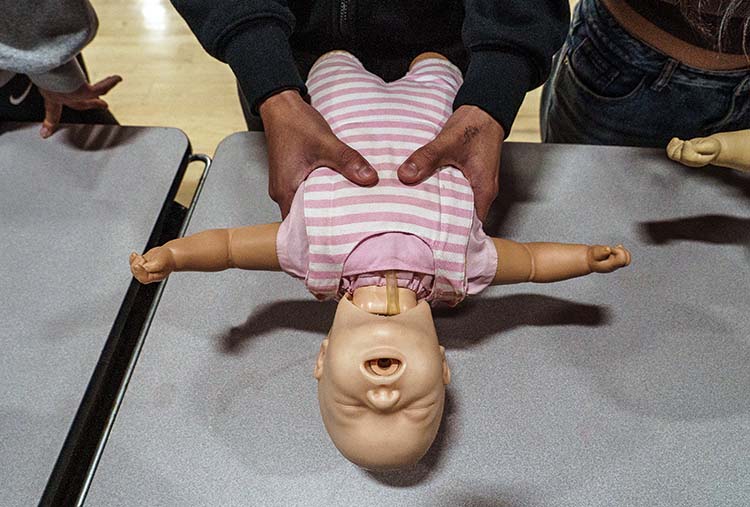Colorectal cancer: tips for avoiding, detecting
by Beth Donovan | Special to the Courier
Cancer in the colon or rectum, collectively referred to as colorectal cancer, is the third most common type of cancer for both men and women. It is expected to account for over 52,000 deaths in the U.S. in 2023, according to the American Cancer Society. Rates of this cancer increase with age and are higher among Black and Native American people.
This cancer, if detected early, can be successfully treated. Like many cancers, there may not be any symptoms until it is more advanced, so screening adults without symptoms is the key to early detection and treatment.
The current recommendation is to screen for colon cancer starting at age 45 and continue screening until 74 years of age, either through stool-based tests or through direct visualization. The stool-based tests include a high-sensitivity guaiac fecal occult blood test or fecal immunochemical test every year or stool DNA with fecal immunochemical test every one to three years. Direct visualization tests include a colonoscopy every 10 years, CT colonography or flexible sigmoidoscopy every five years or a combination of flexible sigmoidoscopy every 10 years plus fecal immunochemical test every year.
There are numerous options, and one test may be better for an individual because of their risk. If you are in a group that should be screened, talk with your health care provider to discuss which test is right for you.
If a screening test is positive, additional testing may be necessary. During a flexible sigmoidoscopy or colonoscopy, biopsies can be done, and potentially pre-cancerous polyps can be removed for further evaluation by a pathologist.
More information about the specific tests can be found on the Centers for Disease Control and Prevention website at cdc.gov/cancer. If you have a family history of colorectal cancer, you may be advised to start screening at an earlier age.
There are a few ways that you can help prevent colorectal cancer. One way to decrease the risk is to eat a diet that includes lot of vegetables, fruits, and whole grains and less red or processed meats. Staying physically active can also help decrease risk. Following a healthy diet and exercising regularly can also help you maintain a healthy weight, another factor linked to lower colorectal cancer rates. Being overweight or obese not only increases your risk of getting this type of cancer, but it also increases the risk of dying from it. Lastly, smoking cigarettes and drinking alcohol have both been shown to increase your risk of colon cancer.
Since the enactment of the Patient Protection and Affordable Care Act, preventive screening tests as recommended by the United States Preventive Services Task Force, including screening for colon cancer, must be covered by most commercial plans with no cost to the patient. Medicare Part B also covers this service.
It’s a good idea to meet with your primary care provider at least annually to make sure you are up to date on preventive screenings and immunizations. If you think you should get screened for colon cancer, you’ll need an order from your healthcare practitioner. It is always a good idea to check with your insurance company to make sure that the service is covered as preventive and that it is scheduled at an approved facility.
The US Preventive Services Task Force is a panel of preventive medicine experts who volunteer to review literature and clinical guidelines, develop recommendations for preventive screenings, medications, and counseling, and assign a grade to their recommendations. In 2021, the task force reviewed its previous recommendations from 2016 and reaffirmed its recommendation to screen adults aged 50 to 75 years. It assigned this screening to a grade A, meaning there is substantial net benefit. Also in 2021, the task force added a recommendation to screen adults 45-49 years old. This recommendation was given a B grade, meaning there is moderate net benefit. All grade A and grade B recommendations must be covered by most commercial health insurance plans with no cost to the patient.
You can download an app at uspreventiveservicestaskforce.org and learn which preventive screenings, medications or counseling services are recommended for you.
Claremont resident Beth Donovan, PA-C, practiced as a physician assistant for 20 years and served as chair of legislative affairs for the California Academy of Physician Assistants from 2004 to 2012. She is on the advisory board for Keck Graduate Institute’s Physician Assistant Program.










0 Comments